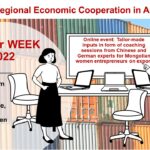GIZ Serbia is organising a panel discussion “Breaking Barriers: Women and Power – Towards Equality”. The event will give a deeper insight into the history of women’s movement in Serbia and the position of women in modern Serbia in three…
Urban Development
GIZ India Gender Focus March 2025 : GSDP Gender Equality and Womens Empowerment Study Findings
GIZ India Gender Focus March 2025 GIZ GENDER KNOWLEDGE EXCHANGE MEET ꟾ GSDP GENDER EQUALITY and WOMENS EMPOWERMENT STUDY FINDINGS Organized by Indo-German Partnership for Green and Sustainable Development (GSDP) GIZ India recently carried out a study on the effective…
Launch: “Gender: First Steps”
The methodology emerges as an innovative proposal in response to the limitations of traditional gender training approaches for public servants and private sector employees. Developed from the Conversápolis exchange space, facilitated by GIZ/German Cooperation, this methodology aims to overcome the…
Gender, Mobility, and Socio-Economic Status: Perspectives from India
Exciting news! 🗣 The next premiere of Women Mobilize Women’s highly anticipated webinar series in collaboration with Mobycon is just around the corner! In this webinar series, we dive into topics surrounding the intersectionality of gender and mobility. In episode…
TUEWAS Women Expert Database
The TUEWAS Women Expert database is a crowd-sourced database of women experts working in transport, energy, water, environment/climate, and urbanism. As women are notoriously underrepresented in Asian scientific conferences and policy events, as well as consultancy work, especially those not…
Gender, Mobility, and Disability: The intersection of varied experiences
Gender, Mobility, and Disability: The intersection of varied experiences Women Mobilize Women and Mobycon present the webinar series “Intersectionality of Gender & Mobility”. Delve into the world of mobility with us as we challenge assumptions and embrace inclusivity! 🚶♂️🚴♀️🚇 The…
GIZ Gender Award Ceremony 2024
GIZ Gender Award Ceremony 2024 Don’t miss – the GIZ Gender Award Ceremony 2024 on Friday, 8th March, 11:00 – 13:00 h CET Where: Bonn, GIZ Campus, Auditorium and online via livestream We are honored to count on the…
The Cities Challenge Empowering women* as active shapers of sustainable urban development
23_English_GG1_GLOBE_Woman urban development
Beitrag der Grünen Innovationszentren in der Agrar- und Ernährungswirtschaft
16_Deutsch_GG1_GLOBE_GIAE
Revolutionizing Urban Mobility through Gender Transformative Interventions in India
05_English_GG2_APLAK_SUID_SUM ACA
Weblog article: “Creating ‘Integrated and safe neighbourhoods for all’ through international peer learning exchange”
Creating public spaces in which all genders and vulnerable groups feel safe is a task of global significance. What works and what doesn’t in implementing this goal is therefore not limited to one place or project. On the contrary, projects…
Weblog article: „Navigating the Concrete Jungle: The Gender Divide in Urban Life”
Different genders experience cities in distinct ways. Nine out of ten women feel unsafe in public spaces, they continue to face inaccessibility, insecurity and various forms of sexual harassment and violence. In her Urbanet article Paula Meth addresses the intersection…
Weblog Article: „Leave No One Behind – Including Marginalised Communities Through Inclusive Urban Planning”
The “Leave No One Behind” (LNOB) principle is crucial for many projects and has positive effects from which both the marginalised groups and the project itself benefit. In her article, Hannah Schabert, who is part of the “Experts for Partners”…
Remarkable Feminist Voices in Transport 2023
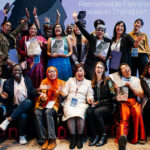
Dr. Bärbel Kofler (BMZ) and Ingrid-Gabriela Hoven (GIZ) award “Remarkable Feminist Voices in Transport 2023″ of GIZ’s Women Mobilize Women Initiative! On March 2nd 2023, Parliamentarian State Secretary Dr. Bärbel Kofler (BMZ) and Ingrid-Gabriela Hoven awarded 33 women from 20 countries as “Remarkable…
Weblog Article: „Feminist Urbanism: Smashing the Patriarchy in Urban Design”
The spatial component of feminism is often underestimated. In her article „Feminist Urbanism: Smashing the Patriarchy in Urban Design” Sneha Visakha, legal researcher and host of the “Feminist City Podcast”, raises the questions who cities are made for, who makes…
Lauching Central Asia Feminist Development Team
We are launching our CAFD Team. Our mission is to raise awareness about feminist development policy; inform and support the operationalisation of feminist development policiy in our work across Central Asia and to set an example of creative and innovative…
Daycare Center as A Coping Mechanism for Working Parents in Dhaka City: A Study on Social Perception
With the increasing female employment and changing demographical structure, parents are looking for alternative childcare options. Thus the service of daycare centers is getting popular in urban settings of Bangladesh. A study by Tabassum (2017) attempts to find out the…
“Support of Regional Economic Cooperation in Asia (SRECA)” brings together Chinese, German and Mongolian women entrepreneurs
MOBILITY SOLUTIONS IN INDIA FROM A GENDER PERSPECTIVE
Issues and challenges in India The transport infrastructure of a country is a key to economic development, and gives people the means to access job opportunities, education, recreation, and medical facilities. However, issues of overcrowding of buses in peak hours,…
How to grow women-led ventures
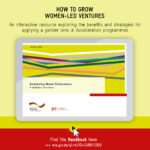
Women face special challenges when starting and growing a business. Accelerators provide mentorship and training. However, many are unduly tailored to the needs of men. Including more women as mentors, investors, and jury members can help to attract more women…
Building Back Better – With Gender-Responsive Infrastructure
10 March | 15.30 CET | online event for GIZ staff |
Highlighting the great challenges and great potential of Gender-Responsive Infrastructure to build back better.
Mujeres a bordo
9 March | 19.00 CET | online event for GIZ staff |
This session discusses the importance of female participation in the transport sector to ensure the construction of just and sustainable cities.
#womenmobilize – Showing diversity in the mobility sector
Mobility is a fundamental part of urban life. As long as we live in cities, people and goods will need to move from A to B for various reasons. In the past, cities have been designed for car use so…
Campaign #womenmobilize
All of March | virtual activities, publication launch, #womenmobilize |
Follow the Hashtag #womenmobilize on Social Media to stay updated with new campaigns, insights and events! Publication of the third “Remarkable Women in Transport”
MOVILIDAD CON PERSPECTIVA DE GÉNERO, ¿UNA REALIDAD EN MÉXICO?
Fecha: 13 de marzo, 2020. Participantes: Miriam Monterrubio- EUROCLIMA+ y C40CFF (GIZ) | Gisela Méndez – Ex Secretaria de Movilidad del Gobierno del Estado de Colima. Duración y Horario: 13:00 – 14:00 (1 hora) Lugar: Sala de talleres – Agencia…
Guatemala: UN PASO HACIA LA MOVILIDAD CON ENFOQUE DE GÉNERO
PROYECTO PILOTO TRICICLOS ELÉCTRICOS EN SAN JUAN COMALAPA, GUATEMALA PROGRAMA EUROCLIMA+ En el espacio público interactúan y conviven las personas y grupos que conforman una sociedad. Ahí observamos con más claridad las desigualdades sociales, como…
Costa Rica: Género y transporte en Costa Rica
1. Contexto Comprendiendo el enfoque de género como un catalizador del desarrollo sostenible, a continuación se presenta el proceso género-sensitivo de innovación en soluciones a la inseguridad de las mujeres en el transporte público como resultado del trabajo que realiza…
Algeria: Concours genre 2020 de la GIZ
Contexte du projet : En Algérie, la participation des femmes aux activités politiques, publiques et sociales rencontre une grande discrimination. Certes plusieurs dispositifs (loi) institutionnels ont été déployés par le gouvernement afin d’assurer l’égalité d’accès aux décisions politiques et publiques,…
Jordan: Women reclaiming public space in a small town
Background In 2012 the Jordanian Ministry of Environment and the German government with its implementing agency GIZ have established a partnership for contributing to Jordan’s ambitions to achieve sustainable development and protection of the environment. The partnership has since then…
Mongolia: TOWARDS GENDER-RESPONSIVE AND INCLUSIVE ULAANBAATAR CITY
ULAANBAATAR CITY BACKGROUND: Mongolia is one of the countries most vulnerable to climate change. The sparsely populated countryside contrasts with the capital city Ulaanbaatar, which is home to almost 1.5 million inhabitants, or half of the country’s population. In Ulaanbaatar,…
Peru: Incorporar la perspectiva de género en el sector transporte urbano en Perú
1. Fomento de la igualdad de género En 2017, Lima fue nombrada entre las 5 ciudades más peligrosas del mundo para las mujeres, con el tercer transporte más inseguro para ellas, según el ranking Thomson Reuters Foundation1. Teniendo en cuenta…
Turkey: Bridging the Gender Gap in Humanitarian Development Peace Nexus
Community Centres and Local Initiatives Project (CLIP) in Turkey Context and initiative Turkey is one of the signatory countries of the Council of Europe Convention on preventing and combating violence against women and domestic violence (Istanbul Convention). Refugee and migrant…
Colombia: ESTRATEGIA DE GÉNERO – PROMOCIÓN PARA EL USO DE LA BICICLETA
C40 Cities Finance Facility – CFF facilita el acceso a financiamiento para proyectos de mitigación y resiliencia al cambio climático en áreas urbanas al proporcionar asistencia técnica para desarrollar las prioridades de sostenibilidad de las ciudades en propuestas de inversión…
Germany: TRANSFORMATIVE URBAN MOBILITY INITIATIVE’S WOMEN MOBILIZE WOMEN
WE EMPOWER WOMEN IN THE TRANSPORT SECTOR Gender Competition 2020 – GG1 – 1st Place CONTEXT AND INITIATIVE The transport sector is not gender neutral: It is dominated by men and with this, transport planning and mobility systems are…
“Empowerment goes Digital” auf dem Digital Gateway
Women can do anything! Crafts, entrepreneurship, local governance!
Women can do anything! Get active in the craft sector, build enterprises, construct communities. A dual apprenticeship system exists in Kpalimé, Togo. Yet, young women are largely underrepresented in classes. They lack role models who could inspire them to go…
Women Mobilize Women: Transforming Mobility through Female Empowerment
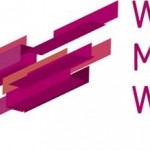
As part of this year’s International Transport Forum Summit 2018 on Transport Safety & Security, the Transformative Urban Mobility Initiative is organizing the first “Women Mobilize Women” Conference to transform mobility through female empowerment on May 22, 2018! » When…
Get involved & stay engaged: Urban activism and more opportunities for Women’s Empowerment
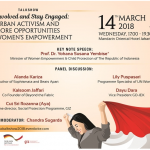
Indonesia’s identity as a multicultural country, with the fourth biggest population worldwide and as one of the twenty most important industrial and emerging market economies (G 20) is one of the largest and most influential economies in the region (ASEAN)…
Photography contest: men-women equality in agricultural value chains
GIZ project on adapting agricultural value-chains to climate change (GIZ/PrAda) in Madagascar is organizing a photography contest on the topic of “men-women equality in agricultural value chains”. The aim is to show through pictures major issues linked to gender and…
Liberia: Capacity Development in the Transport Sector
Project Name: 12.2539.0-001-00 Capacity Development in the Transport Sector in Liberia with focus on private sector development Duration: 2008 – 2019 Partner: Ministry of Public Works, Ministry of Finance and Development, Ministry of Transport, Ministry of Education, Association of Liberian…
Ghana: Women moving the city
Public transport in Ghana‘s capital city Accra is strongly dominated by men and almostentirely provided by self-organized small scale private mini-bus operators. Questionable driving attitude among the operators and male drivers leads to a high rate of accidents. In order…

 GIZ Gender Website
GIZ Gender Website